Welcome 2023 New SBS Faculty!
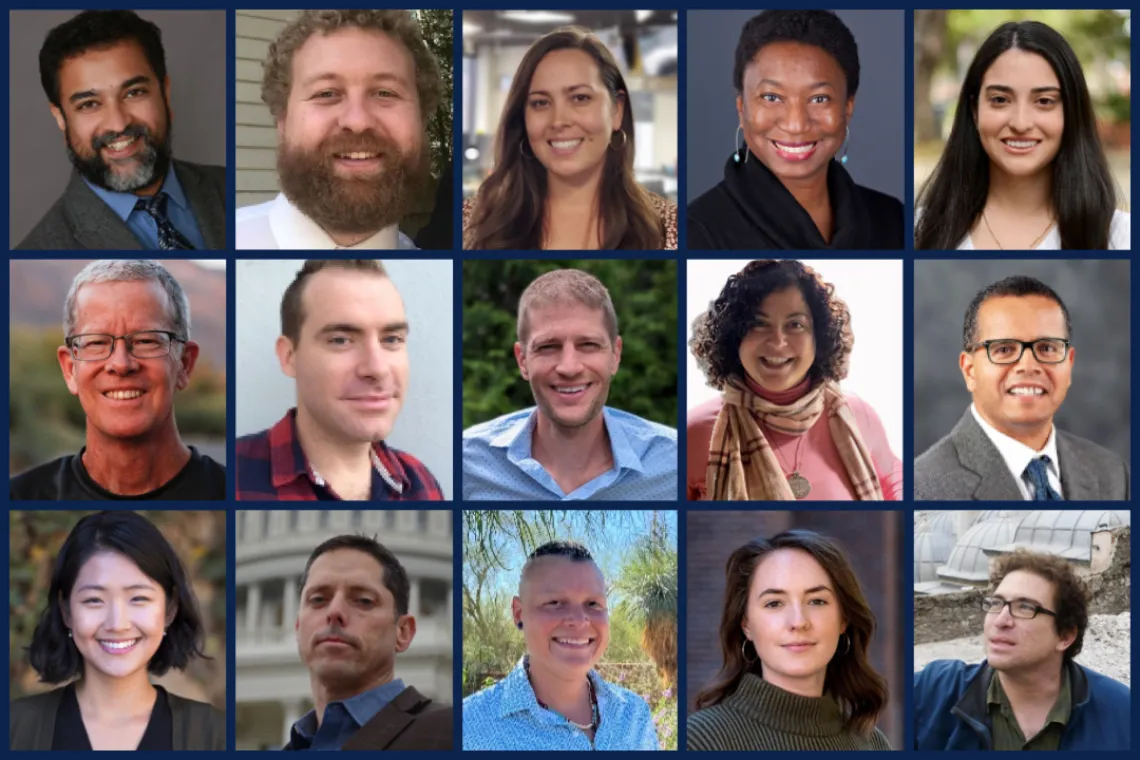
A warm welcome to our new 2023 College of Social and Behavioral Sciences faculty! Our scholars bring genuine passion and extensive research experience across a diverse array of topics. From the multifaceted field of journalism, applied linguistics, and philosophy to exciting fields such as geroscience, organizational inequality, political psychology, and voting behavior, their expertise is wide-ranging. And that's not all — our faculty's interests extend to subjects such as wrongful convictions, the complexity of jury decision-making, gender studies, history, security studies, and the pressing issue of global environmental change.
Kendal Blust
Assistant Professor of Practice, Journalism

Kendal Blust (she/her) is an assistant professor of practice in the School of Journalism and a longtime reporter in the Arizona-Sonora borderlands. Before joining the University of Arizona in August, she spent five years as a reporter with Phoenix NPR member station KJZZ at the Fronteras Desk bureau in Hermosillo, Sonora. Blust covered a wide range of stories from northern Mexico, including cross-border business and trade, immigration, education, women's movements, and the environment. She also worked for Nogales International, an award-winning community newspaper covering local news in Ambos Nogales and throughout Santa Cruz County. Blust’s work in print and radio has received numerous awards and has appeared on national and international platforms including NPR, The World, and the BBC. She is from Tucson and received an M.A. in journalism from the University of Arizona in 2016.
Michael Burgoyne
Assistant Professor of Practice, International Security Studies M.A Program, School of Government and Public Policy
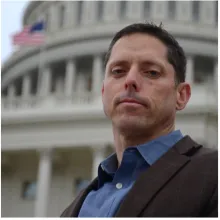
Michael L. Burgoyne is a retired U.S. Army Colonel and joins the School of Government and Public Policy. He deployed twice to Iraq in command and staff positions and served as the defense attaché in Kabul, Afghanistan. He was a counterinsurgency trainer at the National Training Center and co-authored The Defense of Jisr al-Doreaa, a tactical primer on counterinsurgency. He served in various policy and security cooperation positions in the Americas, including assignments as the Army attaché in Mexico, Andean Ridge desk officer at U.S. Army South, senior defense official in Guatemala, and policy analyst at the White House Office of National Drug Control Policy.
Burgoyne holds an M.A. in strategic studies from the U.S. Army War College and an M.A. in security studies from Georgetown University. His research and writing focus on security in the Western Hemisphere, insurgency, transnational organized crime, alliances, and defense policy. He is currently pursuing a Ph.D. in war studies at King’s College London.
Hsain Ilahiane
Professor, School of Middle Eastern and North African Studies
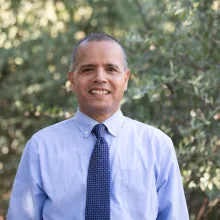
Hsain Ilahiane (Ph.D., University of Arizona) is an applied cultural anthropologist and professor at the School of Middle Eastern & North African Studies and the W.A. Franke Honors College. Prior to joining the University of Arizona, he served as professor and head of the Department of Anthropology and Middle Eastern Cultures at Mississippi State University (2018-2023); as associate professor of applied anthropology at the University of Kentucky (2009-2018); as senior social scientist at Intel Corporation Research Labs in Oregon (2006-2007); and as assistant and associate professor of anthropology at Iowa State University (1999-2009).
Ilahiane’s expertise is in applied and business anthropology and his research interests are economic development; poverty; globalization; information and communication technologies for development; arid lands ecology; oasis agriculture and irrigation systems; informal economies; economic anthropology; political ecology; Islam and the Middle East; and Africa. He is the author of Ethnicities, Community Making, and Agrarian Change: The Political Ecology of a Moroccan Oasis (2004), Historical Dictionary of the Berbers (Imazighen) (2017), and The Mobile Phone Revolution in Morocco: Cultural and Economic Transformations (2022).
Hrishikesh Joshi
Assistant Professor, Department of Philosophy
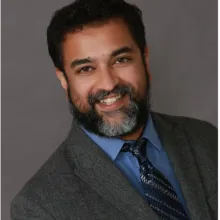
Hrishikesh Joshi (Ph.D., Princeton) is an assistant professor in the Department of Philosophy. He works in ethics, epistemology, and political philosophy. Joshi has taught on biomedical ethics, philosophy, and political economy. Previously, he taught at Bowling Green State University. His dissertation was titled, "Avoiding the One Thought Too Many: Essays in Virtuous Agency."
Hannah Kim
Assistant Professor, Philosophy
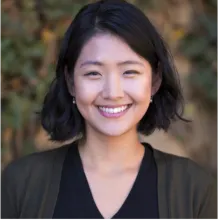
Hannah Kim joins the Department of Philosophy and works on aesthetics, metaphysics, and Asian philosophy. She received her Ph.D. in philosophy and Ph.D. minor in comparative literature from Stanford, and M.St. in philosophical theology from Oxford. Her writings have appeared in WIRED, LA Times, USA Today, Public Seminar, and Aesthetics for Birds, among others.
Spencer Lindsay
Assistant Professor of Practice, School of Government and Public Policy
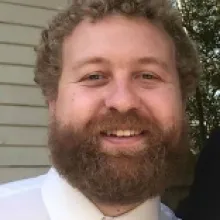
Spencer Lindsay is an assistant professor of practice in the School of Government and Public Policy. His research interests include racial politics, political psychology, democratic attitudes, and voting behavior.
Lindsay earned his bachelor’s degree at the University of Wisconsin, Madison. While in attendance, he worked both on political campaigns and in the Wisconsin State Legislature. Shortly after graduating, Lindsay attended California State University, Long Beach, where he earned a master’s degree in political science. He graduated from CSULB with the highest honor a graduate student can receive from the university. Shortly after finishing his master’s, he taught briefly at Golden West College. He then went on to earn a Ph.D. at the University of Notre Dame. Lindsay’s current research focuses on racial attitudes and democratic values.
Jacob Negrey
Assistant Professor, School of Anthropology
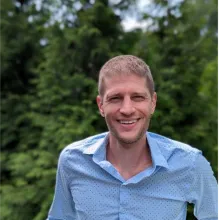
Jacob Negrey joins the School of Anthropology as a primatologist working at the interface of animal behavior, infectious disease ecology, and “geroscience” (i.e., the biology of aging and age-related diseases). He integrates data on social interactions, physiology, and microbial infections to better understand variation in primate health and longevity as well as the trade-offs that individuals necessarily make in a resource-limited world.
Negrey’s work focuses on the Ngogo chimpanzees of Kibale National Park, Uganda, which are remarkable for their long-life expectancies, large group sizes, and exceptionally high levels of intergroup aggression.
Gissel Perez
Assistant Professor of Practice, Sociology
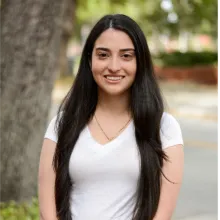
Gissel Perez, from Miami, FL., is an assistant professor of practice in the School of Sociology. She has a bachelor’s in psychology from Florida International University and a master’s and Ph.D. in criminology, law, & society from the University of Florida. Her academic interests include psychology and law, wrongful convictions, and jury and juror decision-making. Her current work examines how jurors perceive certain types of evidence and how these perceptions affect their decision-making in cases. Perez has also conducted research on mock juror perceptions of interrogation tactics and confession evidence.
Deina Rabie
Assistant Professor, School of Anthropology
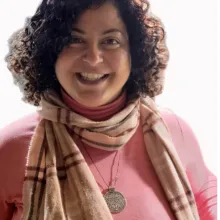
Deina Rabie (pronounced Deena Robbie) joins the University of Arizona as an assistant professor in the School of Anthropology after spending a year as a visiting assistant professor of anthropology at Hamilton College in New York. After receiving her B.A. and M.A. in linguistics from the University of Chicago, she went on to pursue her Ph.D. in linguistic anthropology at the University of Texas at Austin once she realized that what fascinates her the most about language is what people do with it. Her research focuses on the intersection of language, gender, and mobility in the Arabian Gulf and Middle East at large. In her Ph.D., she examined how Emirati women use English-medium higher education as a gateway channel for new forms of social and economic mobility in the United Arab Emirates’ expanding neoliberal economy. Rabie’s areas of specialization include discourse-centered approaches to language and culture, semiotics, feminist anthropology, anthropology of infrastructure, digital media, globalization, and neoliberalism.
Alex Schweig
Lecturer, Department of History
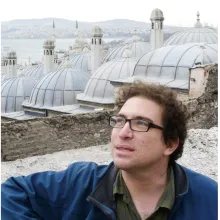
Alex Schweig is a historian of the modern Middle East and joins the University of Arizona as a lecturer in the Department of History. Within this regional specialization, his work has focused on the intersections of social, environmental, technological, and medical aspects of the late Ottoman Empire.
Schweig has taught University of Arizona courses on Ottoman History: History of Muslim Societies, World History, Environmental History of the Middle East, and History of Epidemics. Forthcoming projects include expanding and adapting his dissertation into a monograph, as well as a new project concerning the local effects on Anatolia of the global cholera pandemics of the 19th century.
Samantha Simon
Assistant Professor, School of Government and Public Policy and School of Sociology
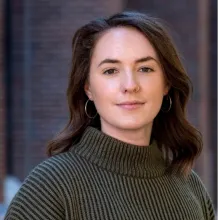
Samantha Simon is an assistant professor in the School of Government and Public Policy and the School of Sociology. Using ethnographic and qualitative methods, her research focuses on violence, gender, race, and organizational inequality. Her upcoming book, titled Before the Badge: How Academy Training Shapes Police Violence, is based on one year of ethnographic field work at four police training academies. In her book, she examines how the hiring and training at police academies emphasizes the use of violence, focusing on the ways that gender and race inform these processes.
Simon's research has been supported by the National Science Foundation, Russell Sage Foundation, and the American Association for University Women, among others. Her work has been published in top-tier peer-reviewed journals, including in Social Problems, Law & Society Review, Qualitative Sociology, and Gender, Work & Organization. Simon has a Ph.D. in sociology from the University of Texas at Austin and a bachelor's degree in sociology from the University of Pennsylvania.
Piper Sledge
Associate Professor, Gender and Women’s Studies
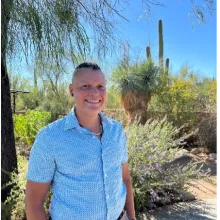
Piper Sledge is an associate professor of Gender and Women’s Studies. A sociologist by training and an interdisciplinary thinker by heart, she is curious about the meaning of gender across a range of contexts. She holds degrees in sociology (Ph.D. University of Chicago) and natural resources (M.S. University of Vermont). Prior to the University of Arizona, she was an associate professor of sociology and director of gender studies at Bryn Mawr College.
Sledge’s first book, Bodies Unbound: Gender Specific Cancer and Social Intelligibility is a comparative study showing how ideologies of gendered bodies shape medical care and the ways patients respond to these ideologies through decisions about their bodies. Bodies Unbound received the Best Publication Award from the Body and Embodiment Section of the American Sociological Association in 2022. Sledge is also the director of community-based initiatives and research for the Indigenous Partnership Program (IPP) of Cosmic Explorer, a next generation gravitational wave detector.
Jonathan Sullivan
Assistant Professor, School of Geography, Development, and Environment
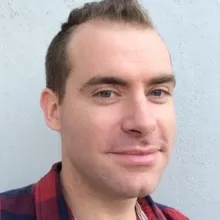
Jonathan Sullivan is a sustainability scientist studying global environmental change and inequality in the School of Geography, Development, and Environment. His research focuses on the human, climatic, and political drivers that generate inequality in multiple forms and how inequality in turn affects our environment. He specifically studies land grabs that are redefining land control globally and their influence on local land inequality, agricultural production, and well-being.
Sullivan’s research also focuses on climate hazards, specifically flooding, where he emphasizes the generation of observational flood maps to assess the relationship between flooding and inequality. He principally relies on statistical causal inference methods to connect human-environment impacts to outcomes of inequality, well-being, and land-use change. In addition, he uses satellite imagery from regional to global scales to monitor agricultural systems and flood events. https://jonathanasullivan.github.io/
M'Balia Thomas
Associate Professor, English
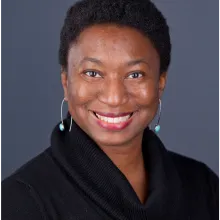
M'Balia Thomas is a Critical Applied Linguist in the Department of English, where she will teach courses to English undergraduate, MAESL graduate, and SLAT Ph.D. graduate students. Her research investigates the linguistic injustices committed against “non-native” and “non-standard” speakers of American English and the everyday creative practices these speakers adopt to resist and address linguistic injustices.
Thomas’ research draws upon a variety of qualitative research methods, including thematic, discourse, conversation, narrative, rhetorical-stylistics, text world theory, and corpus-based analyses. Through the study of written/spoken language — including the language of fictional learners and teachers — her work demonstrates that it is possible to gain insight into learning, teaching, and assessment and the ideologies that shape and impede each.
Rick Wiley
Assistant Professor of Practice, School of Journalism
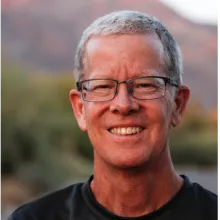
Rick Wiley joins the School of Journalism, having interned and freelanced in the Phoenix area after graduation from ASU in 1986. He joined the Tucson Citizen in 1988 and covered University of Arizona sports including the 1994 Final Four, border news, and variety of local news, sports, features. In 1995, he became photo and graphics editor at the East Valley Tribune in Mesa as the newspaper rapidly expanded to cover suburban Phoenix. He directed visual coverage of news, sports and features, including the 1996 Rose Bowl, 2001 World Series, Arizona's first Super Bowl, and Arizona's largest wildfire. He taught photojournalism as adjunct faculty at ASU and returned to Tucson in 2004 as director of photography for the Arizona Daily Star. Wiley helped direct coverage of three border projects, University of Arizona sports, and a variety of local news and sports features.

